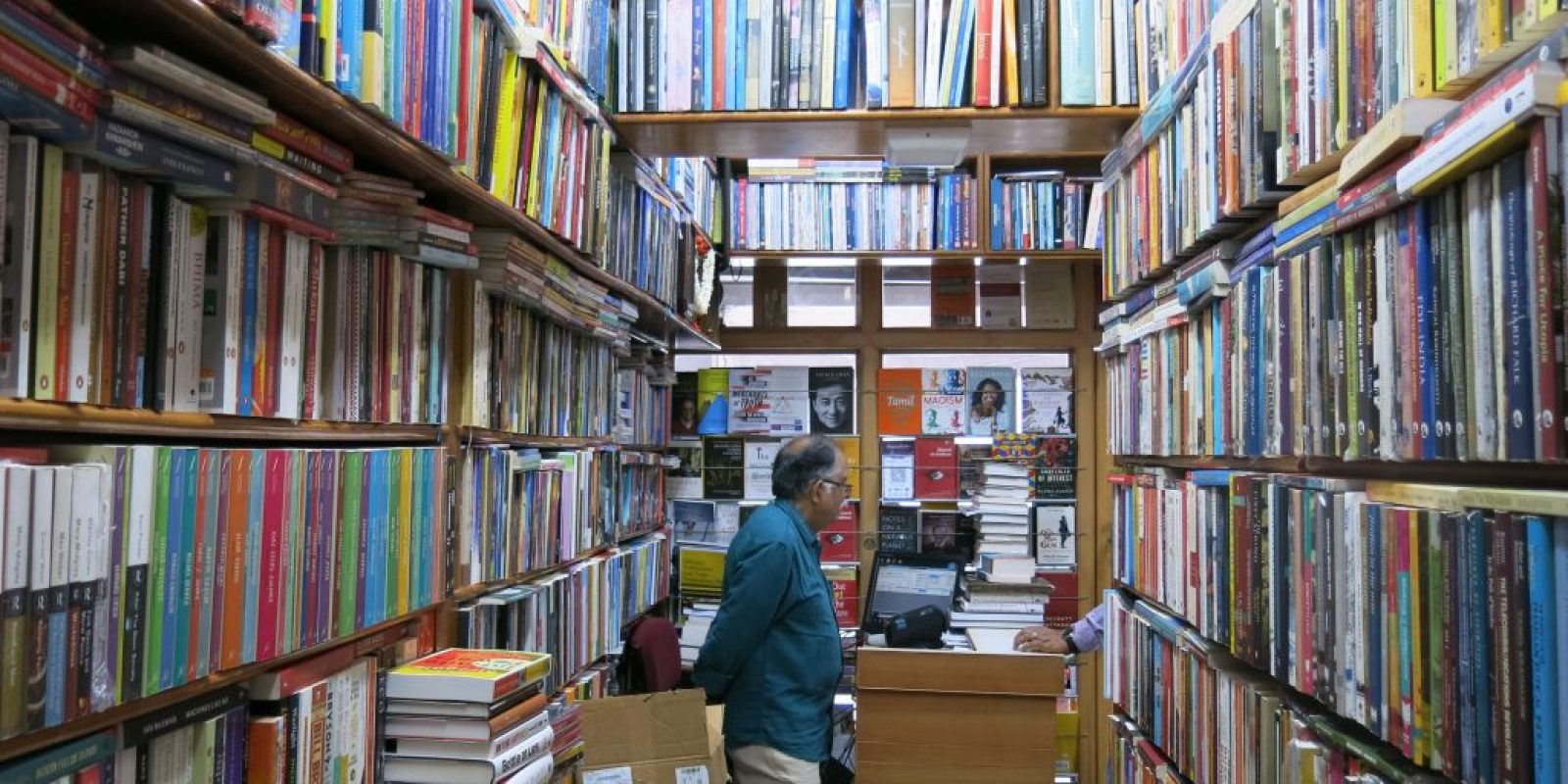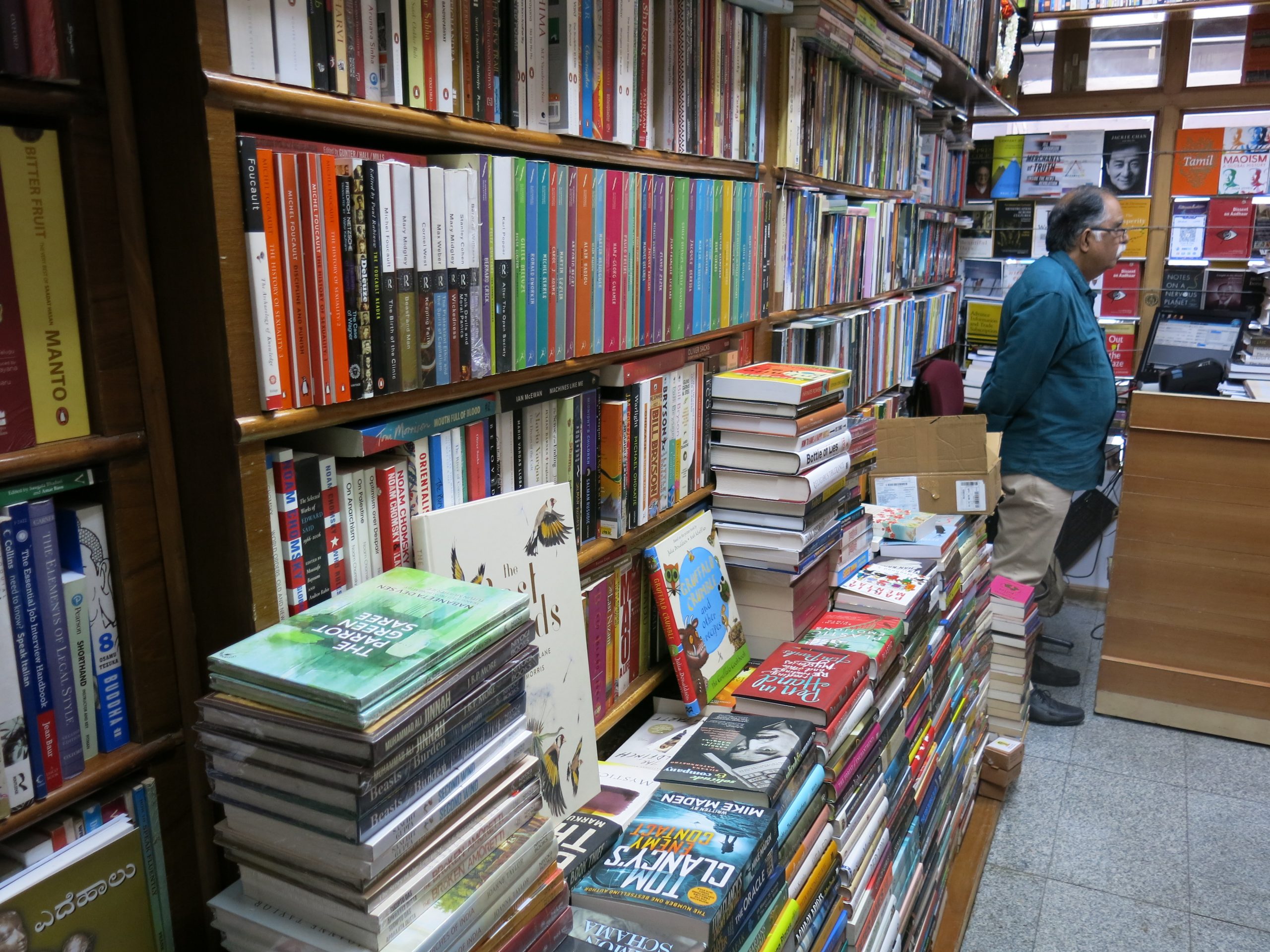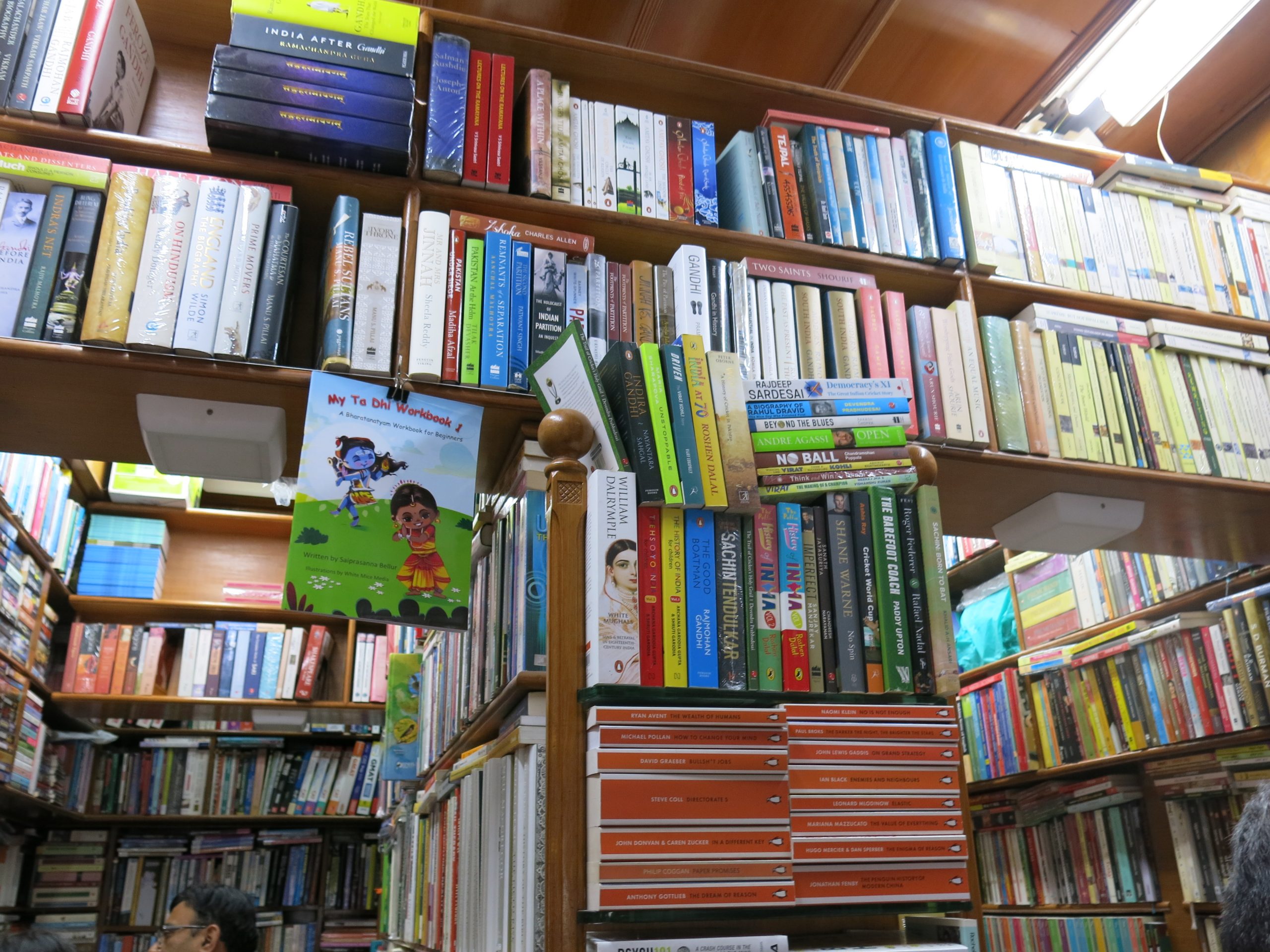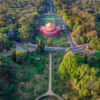Neil Richard MacKinnon Gaiman, the well known English author is quoted to have said “What I say is, a town isn’t a town without a bookstore. It may call itself a town, but unless it’s got a bookstore, it knows it’s not foolin’ a soul.”
Measured by those words, most towns will not be towns soon as bookstores disappear from our lives. As with many other favorite things, the e-revolution flood washed away reading habits of many, leaving a trail of closed bookstores in its wake.
Paper and ink turned into bits and bytes, promising the best ‘paper-like’ experience. But what about the excitement of flipping pages and smelling the fresh print? It is a bit like replacing a real flower with a plastic one. It may look good and be cheaper, but the excitement and wonder is lost. The magical experience of stepping inside a small, local bookstore, being greeted by the owner and guided through the collection is something that cannot be expressed in mere words (or books).
In the years between 1970 and 2000, Bengaluru boasted of many such ‘hole in the wall’ bookstores where one could chat with the owner, walk through stacks of books and hunt for the elusive literary gem. Many like the legendary Premier Book Shop closed in 2009.
- Book treasure hunt
- Stacks of books at Nagasri
- The four dimensional book store
A few are still fighting the Amazonian tides, like Nagasri Book House in Jayanagar Shopping Complex. Once you fight the relentless traffic, jump over parked vehicles and dodge street vendors, jumping inside the bookstore is like time travel – you are in a different layer in the universe. The chaos outside is replaced by the quiet, colourful maze of books and nothing but books. It is quite amazing how many you can find in a shop that is probably less than 200 square feet in size.
Nagasri Book House was started in November 1976 and is currently managed by Venkatesh K.V. and Prasad. Jayanagar Shopping Complex – perhaps the first modern shopping mall in the city – was opened in April 1976. Hard to believe but most of the area around the complex was purely residential and a lot of plots had no buildings. Hence there were very few takers for shops in the complex.
Venkatesh reminisces about the early years of Nagasri, “The motivation to open was my uncle who was working with India Book House (IBH) and was keen to open a book shop. I was in college at that time. My uncle left IBH and joined politics. After that we got the allotment in this Shopping Complex and started this. We started selling stationary like pencils, erasers, gift articles, greeting cards and moved into text books before focusing purely on books. We also sold audio cassettes which was a hot seller in the 1980s. Some of these were purely to entice customers to our shop at a time when very few people came to the complex. In those days, even a business of one hundred rupees was a big deal. There were many days when we have closed shop without selling a single item. There were very few shops of any kind around us and very little street lighting as well. We added more lights in front of our shop to attract people for the first few years. Then Poonam theatre started functioning and slowly more people started to come. It was after 1983 that business became steady and.after struggling for 7 years, we started doing well”.
Four decades is a very long time in business. Reading habits and people’s tastes in books have seen a lot of changes too. Venkatesh commented that “Books are like the ocean where you cannot find the depth. We learn many things from customers but at the same time we cannot ourselves read every book before we sell or promote it, This is humanly impossible, We listen to customers, read reviews and cater according to their taste.”
If a reader knows exactly what he or she wants, then it is quite easy and convenient to order it online with a few clicks. But, half the fun of books is in the Treasure Hunt. Browsing through collections and genres, reading the blurb (“excerpt on the back cover that sells your book when your front cover has attracted prospective readers”), feeling the book, checking the size and price adds to the adventure of a book buying visit.
Venkatesh adds that “We encourage customers to come in, browse and select any book they want. We will discuss their needs and tastes and help them out. We learn a lot through customer interaction, the most important aspect for a bookseller. The whole thing is a cyclic process where we learn from one customer and share this with another interested customer”.
An elderly lady walks into the shop clearly exhausted at the effort. She complains that it is almost impossible to reach it with all hurdles in the way. She is looking for Kannada writer Na DeSouza’s short story collection. One of Venkatesh’s assistants looks through the shelves but does not find it. Venkatesh suggests Jayant Kaikini or Nemichandra’s short stories as equally interesting. A few alternatives are swiftly found from the hundreds of books and the lady is happy to discuss her need, while browsing through the selected books. Now, can anyone name a online bookseller who can replicate this experience?
As noted before, books are stacked wall to wall and floor to ceiling. There are books on uncommon subject areas like psychology, philosophy, films, arts and other non fiction topics. Venkatesh says “We sell mainly English and Kannada books in our store. But we do carry a lot of translated works from other languages to English or Kannada”.
Venkatesh admits that due to lack of space books are stacked two or even three rows deep. While he maintains a catalog on his computer, finding a book is pure art (and memory). There is a method in madness as books are placed by genre, publisher, author – even though it is not evident to others.
What is heartening is that there is a steady flow of customers – even though some are looking for school textbooks. Venkatesh recollects some of his celebrity customers like late Girish Karnad, BK Chandrasekhar, GK Govinda Rao who came looking for books.
The current trend seems to be favouring lighter reading.
“People do read books but we have to promote it to the next generation. Younger customers come but they are all hooked to their mobiles. Most go for Chetan Bhagat or Amish Tripathi but rarely venture beyond that. Very few people ask for books with deeper content or yesteryear bestselling authors like Frederick Forsyth, Arthur Hailey, Jeffrey Archer” notes Venkatesh.
Venkatesh also ventured briefly into book publishing, including a biography of cricketer Rahul Dravid. But they have not pursued it as it needed a lot of involvement and time.
What about the future of bookstores? Venkatesh has no plans to go online as it is very difficult to compete with big sellers like Amazon or Flipkart. Building a website is easy but operating it, fulfilling orders needs additional staff.
“The future is uncertain and difficult to say how long we can survive the online onslaught. It is a 10 hour daily job and not easy to run. A lot of our old customers have left Jayanagar and moved to other parts of the city due to commercial development of old residential areas. Even though many are within 6-7 kms, commuting is not easy. But they still come to us as this is the only bookshop in South Bengaluru.” concludes Venkatesh.
To conclude on a positive note, small, independent booksellers are making a comeback in many countries. In the United States of America, about 20 years ago bookstores were rapidly closing because of competition from chain bookstores like Barnes & Noble and on-line book sales. According to the American Booksellers Association, the number of independent bookstores fell by approximately 40 percent in twenty years from 1990. But they recovered and grew by 35 percent between 2009 and 2015. In 2018, sales grew at about 5 percent over the previous year. There is still hope at the end of the rainbow.










